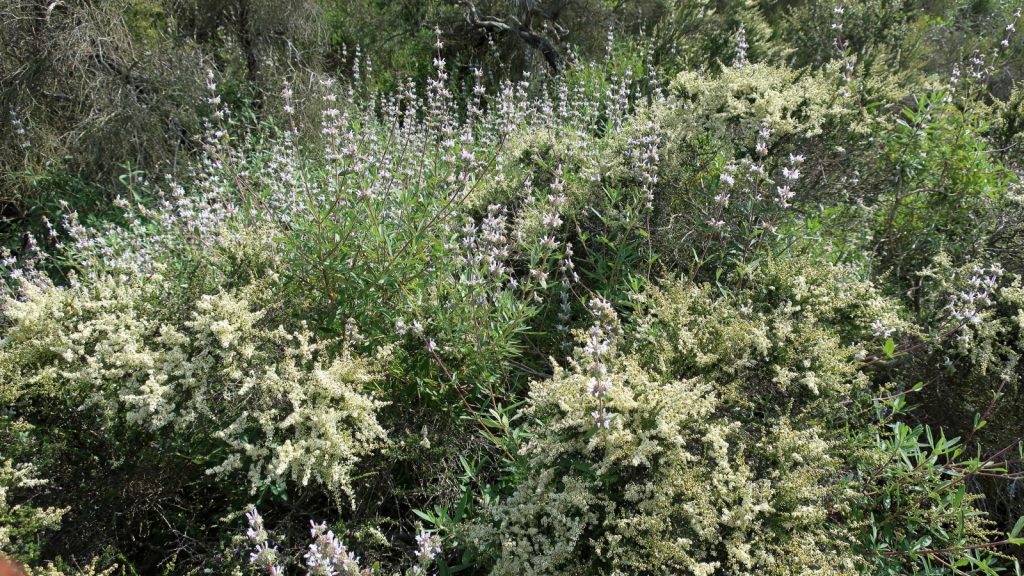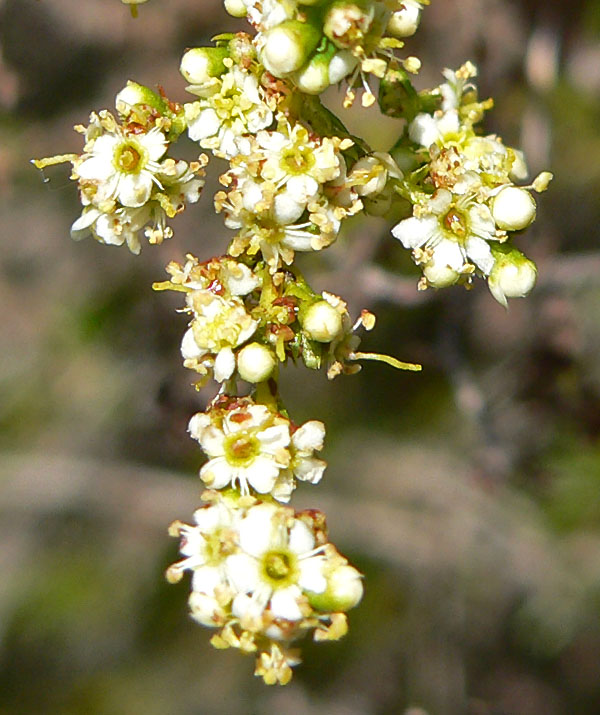
Also known as greasewood, this evergreen spreading or prostrate shrub is native to California and Baja California and is the most abundant species in the California chaparral. It is a member of the rose family, Rosaceae, that also includes cherry, lady’s mantle, and goat’s beard. The plant grows up to 12′ tall and has a wide spreading deep root system with a root crown called a basal burl that facilitates resprouting after fire. The long arching stems that arise from the burl are resinous and oily and have reddish bark when young but gray exfoliating bark with maturity. The olive-green, needle-like leaves are .2-.4″ long and are in clusters spirally arranged on the stems and branches. In spring and summer terminal elongated clusters of flowers appear. The clusters may be up to 5″ long and are composed of small, white tubular flowers with 10-15 long stamens and 5 petals that remain on the fruit (an achene) as it matures, turning rusty brown in color. The resinous substance in the leaves burns rapidly when ignited but the plant resprouts quickly after a fire. The plant is very tolerant of drought, heat, and lean soil, and provides food and cover for reptiles, birds, and mammals. It is useful for xeriscaping and can be used as a wind break or screen and for erosion control. The prostrate variety is valued as a ground cover. The genus name, Adenostoma, comes from the Greek words aden, meaning gland, and stoma, meaning mouth, and refers to a gland at the mouth of the calyx. The specific epithet, fasciculatum, is from the Latin word, fasisculus, meaning small bundle, and refers to the clusters of leaves. Photo Credit Wikimedia Commons

Type: Evergreen shrub
Outstanding Feature:
Form: Upright, rounded
Growth Rate: Slow
Bloom: Clusters of small white flowers with long stamens in spring and summer
Size: 3 – 12′ H x 1-8′ W
Light: Full sun
Soil: Sand to clay, dry to medium moist, well-drained; tolerates lean soil and drought
Hardiness: Zones 6-10
Care: Low maintenance
Pests and Diseases: None of significance
Propagation: Seed
Outstanding Selections:
‘Black Diamond’
var. prostratum (low growing, prostrate form)
Photo Credit: Stan Shebs Wikimedia Commons